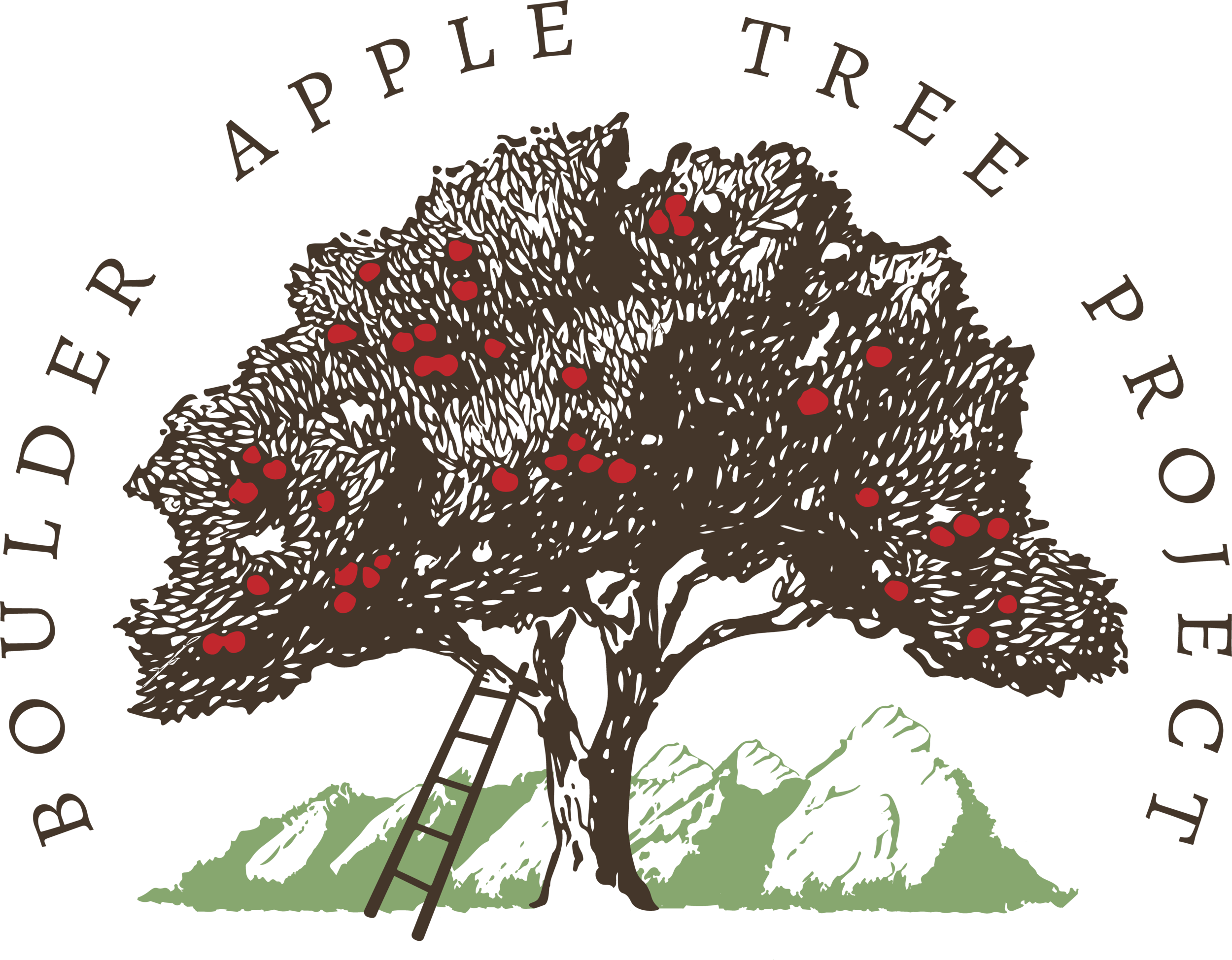Recording the community: Oral history at BATP
Community sharing event in Hygiene in November 2018 where we interviewed residents about apple trees. More events coming soon!
The Boulder Apple Tree Project relies on historic documentation such as photographs, maps, deeds, farmers’ journals and almanacs, nursery catalogs, and basically anything written down that involves apple trees in Boulder County. Interviews and oral histories with Boulder residents provide another vital resource. The process of collecting people’s stories, memories, and family records helps make sense of other areas of our research and sends us on brand new quests, as well. For example, we have started to piece together the care certain trees have received over the decades and what role local trees and apples have played in Boulder childhoods, topics we did not consider when we started with the scientific and written sources. We have collected interviews as part of our fall “apple blitzes,” where we conduct short interviews with property owners; in follow-up meetings and events with interested community members; and in formal oral history recordings that will be available online through the Carnegie Library for Local History in Boulder.
The most helpful stories for our research generally come from two places. First are the residents who have rich documentation of past property owners, tree planters, and even apple cultivars associated with a specific tree or property. Sometimes these people are descendants of early settlers and sometimes they are enthusiastic community members who have documented their neighborhood’s history. Second are the residents who have a lifetime’s worth of experience tending to and growing apple trees of their own.
We also collect stories and experiences from people who live, work, and play with apple trees, even if those trees are not historic or if the residents don’t know the trees’ full history. We collect these stories so we can get a better picture of what apple trees mean to today’s residents and to create a record for the future.
You can read more about the process of interviewing Boulder residents and the role of community input here. If you or someone you know would like to be interviewed or considered for an oral history, please do not hesitate to contact us at boulderappletreeproject@gmail.com. Check back to see when our interviews become available online at the Maria Rogers Oral History Program at the Carnegie Library for Local History and for information on our upcoming community sharing events in the fall!
Amelia Brackett Hogstad

